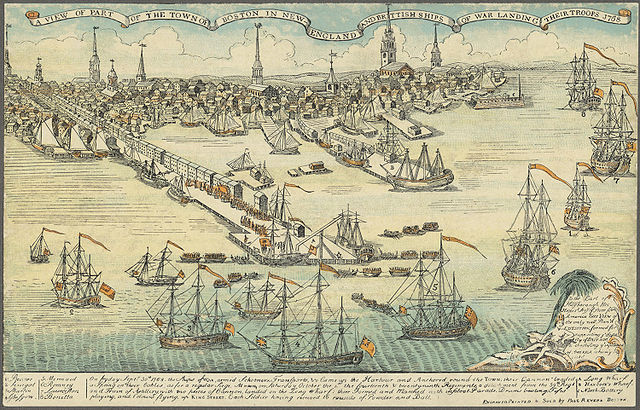The Tea Act 1773 was an Act of the Parliament of Great Britain. The principal objective was to reduce the massive amount of tea held by the financially troubled British East India Company in its London warehouses and to help the struggling company survive. A related objective was to undercut the price of illegal tea, smuggled into Britain's North American colonies. This was supposed to convince the colonists to purchase Company tea on which the Townshend duties were paid, thus implicitly agreeing to accept Parliament's right of taxation. Smuggled tea was a large issue for Britain and the East India Company, since approximately 86% of all the tea in America at the time was smuggled Dutch tea.
A 1789 depiction of the Boston Tea Party
The Townshend Acts or Townshend Duties were a series of British acts of Parliament passed during 1767 and 1768 introducing a series of taxes and regulations to fund administration of the British colonies in America. They are named after the Chancellor of the Exchequer who proposed the programme. Historians vary slightly as to which acts they include under the heading "Townshend Acts", but five are often listed:The Revenue Act 1767 passed on 29 June 1767.
The Commissioners of Customs Act 1767 passed on 29 June 1767.
The Indemnity Act 1767 passed on 2 July 1767.
The New York Restraining Act 1767 passed on 2 July 1767.
The Vice Admiralty Court Act 1768 passed on 8 March 1768.
Charles Townshend spearheaded the laws, but died before their detrimental effects became apparent.
Dickinson's Letters from a Farmer in Pennsylvania
Non-importation agreement, dated October 1767, signed by Bostonians including Paul Revere
Paul Revere's engraving of British troops landing in Boston in 1768





